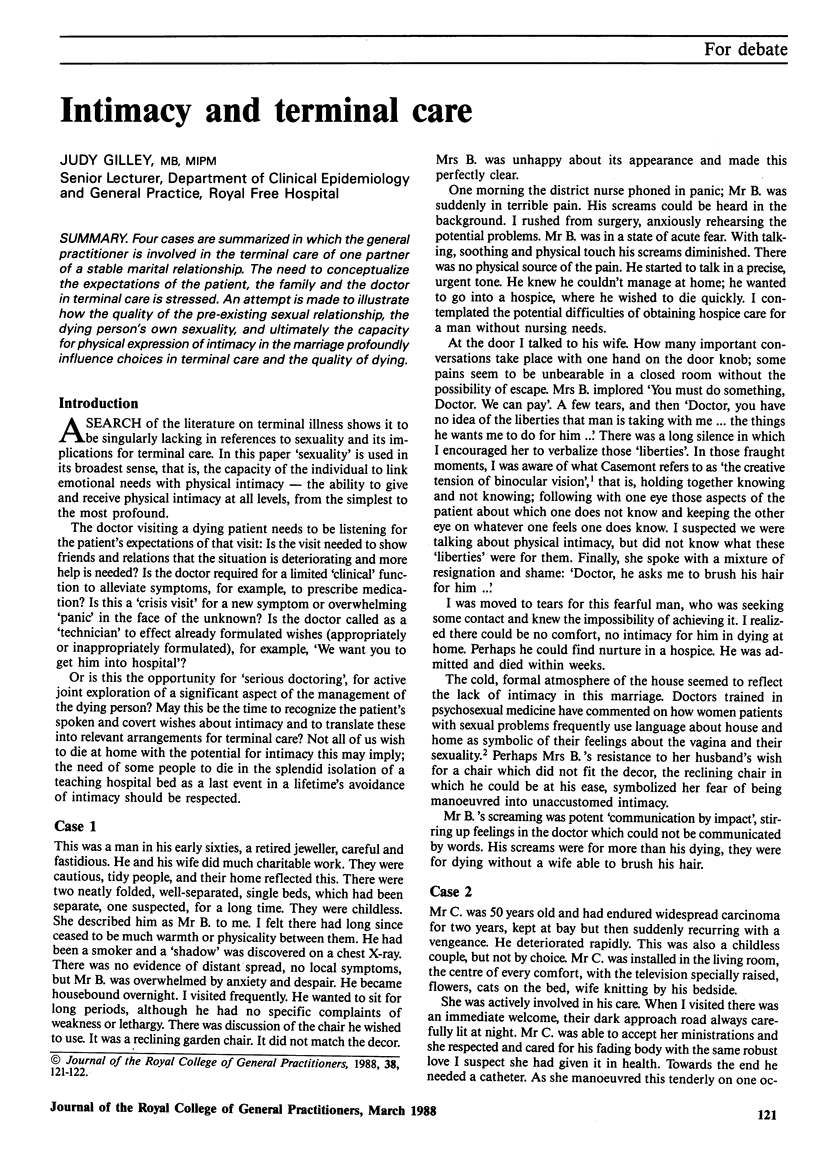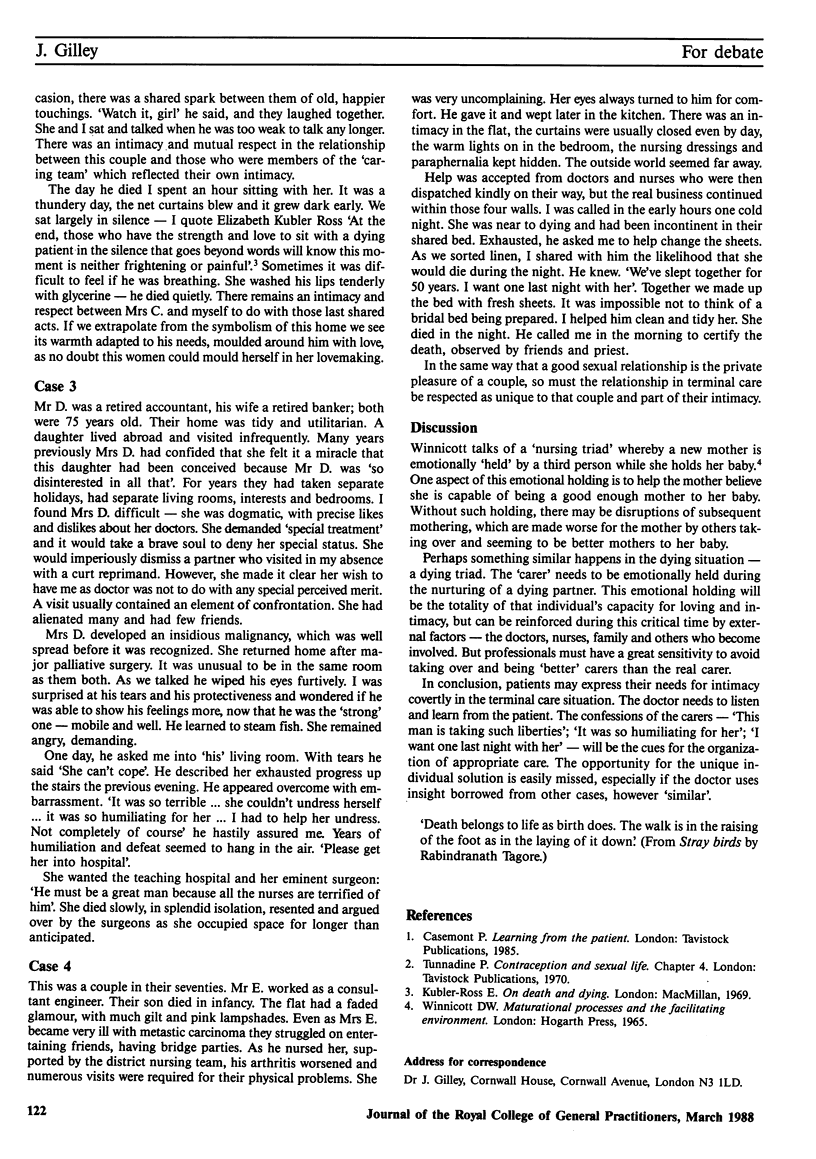Abstract
Four cases are summarized in which the general practitioner is involved in the terminal care of one partner of a stable marital relationship. The need to conceptualize the expectations of the patient, the family and the doctor in terminal care is stressed. An attempt is made to illustrate how the quality of the pre-existing sexual relationship, the dying person's own sexuality, and ultimately the capacity for physical expression of intimacy in the marriage profoundly influence choices in terminal care and the quality of dying.
Full text
PDF



